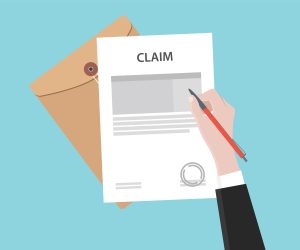How To File A Car Accident Claim With Your Insurance Company
 Every car insurance company has its own rules determining how, where, and when drivers should submit accident claims. However, most agencies have similar expectations that might make filing a claim seem easy, but could risk your right to a fair recovery.
Every car insurance company has its own rules determining how, where, and when drivers should submit accident claims. However, most agencies have similar expectations that might make filing a claim seem easy, but could risk your right to a fair recovery.
The Importance Of Filing An Insurance Claim
New York is a no-fault insurance state.
Under New York’s no-fault system, drivers involved in a crash are expected to file a claim with their insurance agency. Your insurance company is, in turn, required to provide certain benefits. These benefits include the repayment of any collision-related medical care, as well as the replacement of lost income from work.
Unfortunately, no-fault benefits have well-defined limitations.
Most policies, do not have enough coverage to compensate survivors who have sustained serious injuries. And insurance companies are, in many cases, prohibited—by their own rules, and by state law—from offering any assistance outside the terms of your policy.
Although your agency may claim that its hands are tied, you don’t have to pay out-of-pocket for an accident that was not your fault. In New York, car crash survivors who have sustained serious injuries still have a right to take their case to court.
However, even if you think you have standing to sue, submitting an insurance claim remains a matter of practical necessity. If you fail to file a claim, your lawsuit could be dismissed outright—making it much more difficult to obtain the compensation you need to reclaim your independence.
Filing An Insurance Claim In New York State
Insurance companies typically require that policyholders file accident-related claims promptly and within about 30 days of the crash.
After your claim has been received, you will likely receive several forms which must be completed and returned to your insurer. These forms ask for information about your accident, as well as any losses you may have sustained as a result.
You may need to provide information and documents including, but not limited to, the following:
- A copy of a police report, if law enforcement responded to the crash;
- A copy of the accident report you sent to the New York Department of Motor Vehicles, if you were required to file one;
- Proof of your identity and address; and
- Information about any other drivers involved in the crash; and
- Information about the vehicles involved in the collision.
If you need medical care or intend to initiate legal proceedings against an at-fault driver, you should also provide a written notice to any parties who may be liable for your damages.
Insurance Adjusters Do Not Have Your Best Interests In Mind, But We Do
Your car insurance company is required by law to provide reasonable benefits by the terms and limits of your policy.
However, insurance agencies are profit-driven enterprises.
Since car crashes can be very expensive, insurance companies are strongly incentivized to minimize their financial losses. To try to protect their investors and pay out less on your claim, adjusters may push back, refusing to authorize treatment or demanding more and more evidence to substantiate your claims.
Beyond that, if you file a claim of notice against another driver or their insurance agency, be prepared for a long fight. You might be asked to provide a recorded statement or to let another adjuster access your medical history. Let us handle the communication with the insurance company so you do not have to. Our experienced attorneys fight with the insurance companies, every day to get our clients the compensation they deserve.
 Buffalo Personal Injury Lawyer News
Buffalo Personal Injury Lawyer News

